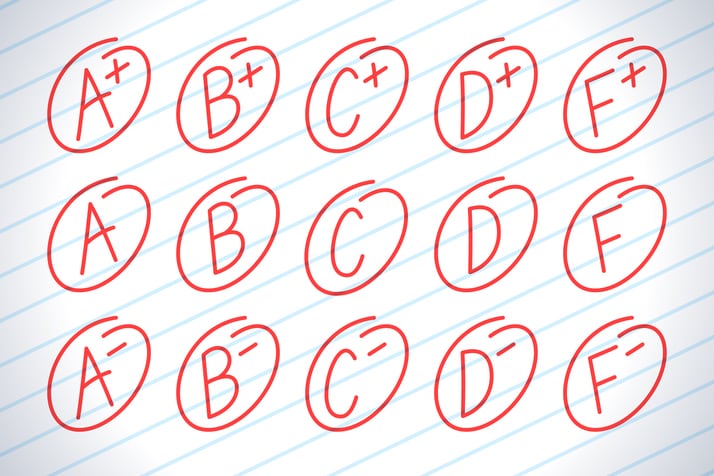A new grading policy is in the works in Chicago Public Schools, where officials are weighing calls by the teachers union and others to shift to a pass/fail approach.
The district stuck with letter grades at the end of its third quarter last week, even as some educators voiced concern about grading students only days after the formal start of remote learning in Chicago.
Echoing guidance from the state, the district had decreed that students’ grades could only improve during the weeks of learning at home — a nod to disparities in access to technology and other challenges that can make remote learning tougher for some students. But some teachers argued that inequities magnified by the coronavirus crisis nevertheless make any kind of grading problematic.
District officials told the district governing board Wednesday that they are reexamining the issue of grading in consultation with the Chicago Teachers Union. They said they are trying to strike a balance between keeping students and schools accountable, and giving priority to students’ social and emotional needs during the pandemic.
“I feel strongly we need to create a system of checks and balances,” said schools chief Janice Jackson, echoing the position of some educators who have argued that students need incentives to log on and complete assignments. About the new policy in the works, she said,“we’ll put together something that’s complex and meets the needs of everybody.”
The union head, Jesse Sharkey, who addressed the board virtually during a truncated version of its monthly meeting, said a pass/fail or credit/no credit approach makes sense, calling it “the only way to account for the disruption a global pandemic has caused.” Students could opt to receive a letter grade.
“We are going to lose a certain amount of academic progress, and that’s inevitable,” he said.
In response to later questions from board members, LaTanya McDade, the district’s chief academic officer, said Chicago is researching how other districts across the country are handling grading and talking with the union and others. She noted some students still need grades for their college applications, and some have received letters from colleges reminding them they need to maintain their grade point averages.
Some districts are allowing students to opt in to letter grades. In Denver, high school students now have a choice: For each class, they can decide whether they want to receive a letter grade or would prefer their transcript to show that they earned or did not earn credit for the course. No teacher can give a student an F. In New York, schools still grade assignments, but officials have emphasized “flexibility” — like allowing more make-up work and latitude around student attendance. Officials there have said they are also weighing other options, as Chicago is.
McDade said Chicago is sensitive to the steep hurdles to learning many of its students face; officials plan to keep putting a premium on supporting students’ social and emotional well-being.
But she said, “We want to make sure we respect and honor the hard work students are doing right now. We have to find some middle ground.”
Jackson said she does not want a “situation where anything goes and everyone gets a pass.”
If students put in the work, they should have a chance to improve their standing. “My argument is if 10 kids show up, teach the 10 kids that show up,” she said.
District officials also said they are working on a more sophisticated approach to tracking how many students are engaging with schoolwork and how; the district will also collect data on what schoolwork teachers are assigning.
Some board members signaled support for changes to the grading policy.
School board member Elizabeth Todd-Breland, a college professor, noted that her university campus has shifted to a model in which students can choose between credit/no credit or letter grades. She suggested that approach could make sense for the district as well.
“Of course learning continues; I get this message loud and clear,” she said.
But, she said, “Our young people are going through lots of different things.”
In an informal Chalkbeat poll posted on Twitter just as third-quarter grades were due, 26.8% said the district should move ahead with grading, 57.1% said it should reconsider, and 16.1% were undecided. All together, 112 people responded.






